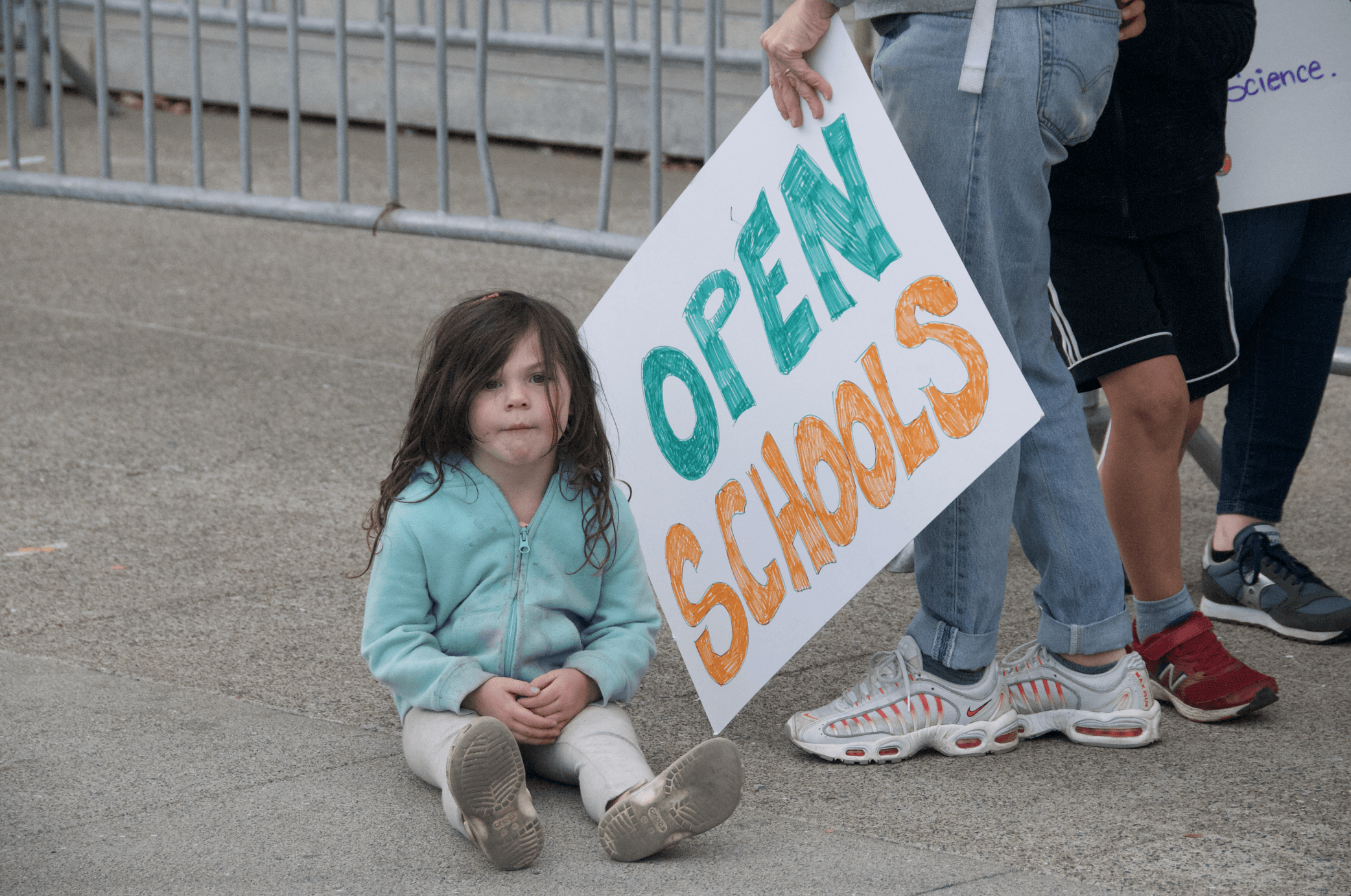In a unanimous vote, the San Francisco school board has pledged to provide full-time in-person learning for all students next school year if public health guidelines allow.
This news comes as a major relief for families who have been asking for months about the district’s reopening plans for the 2021-22 school year.
“We’re thankful to Commissioner Jenny Lam and grateful for the unanimous vote,” said Meredith Dodson, founder of the parents’ group Decreasing the Distance. “For this board to affirm their commitment—that’s an important step giving assurance to families about the fall; the families who were wavering and the families who had started to lose hope. This brings some of that hope back.”
The resolution, authored by school board member Jenny Lam and introduced during the school board’s April 6 meeting, notes that distance learning has been suboptimal for students and that “in-person learning has historically been and remains the most effective form of whole-child learning for the majority of students.” It also highlights the significant mental health challenges posed by remote learning, including that UCSF Benioff Children’s Hospital has seen a dramatic increase in the number of suicidal children in the emergency room.
“Our firm intention to ensure all students are able to attend full-time, 5 days a week, in-person learning on the first day of school, August 2021, and SFUSD will continue to bring as many students back to in-person learning as possible this Spring,” reads the resolution.
Families who opt out of in-person learning will still be offered a remote option next semester.
Public commenters during Tuesday’s meeting largely celebrated the prospect of a full-time return to classrooms come August. However, some parents and students lamented that middle school and high schoolers have been overlooked thus far.
Beginning April 12, the district will offer full-time and hybrid in-person learning to preschoolers, elementary-aged students, special education students and some students facing homelessness, residing in public housing or demonstrating limited internet access, but not students in upper grades.
“Think about it this way. We will be able to go to concerts and movies, fully-packed, before we can get back to school,” said high schooler Cal Kinoshita.
Gov. Gavin Newsom announced Tuesday that California’s economy will fully reopen on June 15 and that his “expectation” is that there will be “no barrier to having our kids back in in-person instruction” after that date.
However, staffing classrooms for even a limited return this spring has been a challenge. Approximately 290 teachers and paraeducators have met criteria to work remotely for the remainder of this semester, which includes “increased risk for severe illness from COVID-19 or [those] who cannot safely distance from household contacts who belong to a group at increased risk,” meaning that the district is seeking substitute teachers to fill the educator shortage.
“We need substitutes in order to do this work,” said Daniel Menezes, chief of human resources for the San Francisco Unified School District, in the April 6 school board meeting. “We’re also exploring options to deploy central staff,” Menezes added. The district is calling for qualified individuals to apply to substitute teach.
This means that some students will be supervised in the classroom by a substitute while their teacher instructs them over Zoom. Numerous parents called into public comment to express concerns about this setup.
“‘Zoom in a room’ is not student-centered,” said one parent. Other parents reported that information about school reopening hasn’t been clearly shared, and they haven’t received packets about in-person learning as promised.
Under local public health guidelines, schools have been allowed to reopen in San Francisco since last fall. Over 100 private schools are operating in San Francisco under such guidelines. However, negotiations with SFUSD’s unions and an initially sluggish vaccine rollout hamstrung the reopening of the city’s public schools.
Broadly, San Francisco’s school district has been under fire for its slow reopening process, including two lawsuits by San Francisco’s city attorney (which were later rejected by a San Francisco judge) and harsh criticism from Mayor London Breed. There’s also an effort to recall three school board members.
In June, San Francisco’s school board chose not to hire a consultant to help the district plan for school reopening despite the urging of Superintendent Vincent Matthews, who told the board that denying the contract would be a “body blow” to returning students to classrooms. Many school board members expressed concern about the consulting organization’s work for charter schools and ultimately voted against it.
On April 6, the school board also unanimously passed a resolution to undo its earlier controversial decision to rename—without broad community input or the help of historians—44 district schools with namesakes tied to white supremacy, genocide and slavery, including those named after presidents Abraham Lincoln and George Washington.
The resolution reads, “The Board is deeply grateful for the work of the Panel, but wishes to avoid the distraction and wasteful expenditure of public funds in frivolous litigation.” A civil lawsuit alleges the school board’s decision may have violated the Brown Act (California’s open-meeting law).
The board expects to revisit renaming in the fall, but only after “all students have returned to in-person learning for 5 full days each week,” according to the resolution.
